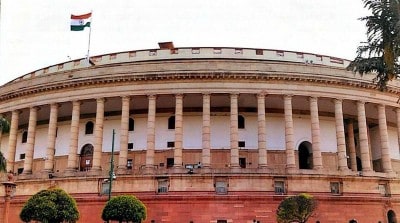By Rajnish Singh
New Delhi, Sep 21 : The Lok Sabha inked another record in the history of Parliament by hearing ‘Matters of Urgent Public Importance’ during midnight proceedings of the ongoing Monsoon Session when most of the Indians were sleeping. The lower House which began its proceedings at 3 p.m. on Sunday concluded its session at 12.34 a.m. on Monday, spending more than two hours to hear the ‘Matters of Urgent Public Importance’ raised by the parliamentarians.
Several parliamentarians and officers in the Lok Sabha secretariat said it was the first time in the history of Parliament when the Lok Sabha (House of the People) held ‘Matters of Urgent Public Importance’ or ‘Zero Hour’ after the Lower House was constituted for the first time on April 17, 1952, following the first General Elections – held from October 25, 1951, to February 21, 1952, and the First Session of the First Lok Sabha that had commenced on May 13, 1952.
‘Matters of Urgent Public Importance’ gives Members of Parliament (MPs) a vehicle to discuss a matter of current concern without the requirement for a question to be before the Chair.
The Assembly does not make a judgement on the matter by way of resolution.
Under this procedural device, a Member may, with the prior permission of the Speaker, call the attention of a Minister to any matter of urgent public importance and the Minister may make a brief statement thereon.
There shall be no debate on such a statement at the time it is made. After the statement, brief clarifications can be sought from the Minister by the Member who has initiated the Calling Attention and other Members whose names appear in the List of Business are called by the Speaker.
Only those matters which are primarily the concern of the Union Government can be raised through a Calling Attention notice.
The Calling Attention procedure is an Indian innovation that combines asking a question with supplementaries and making brief comments; the government also gets an adequate opportunity to state its case. The Calling Attention matter is not subject to the vote of the House.
Known as ‘Zero Hour’, the matter of public importance started on late Sunday night after the House passed three major Bills — two related to the Union Home Ministry and one of the Finance Ministry — on the recommendation of Lok Sabha Speaker Om Birla.
Announcing to start the ‘Zero Hour’ of the Monsoon Session, for the first time in the night, Birla, however, requested Members of Parliament to conclude their matters within one minute. “I will give enough opportunities to every MP during Zero Hour but not enough time,” Birla said before creating the history by running the Zero Hour which began around 10.30 p.m. on Sunday and crossed 12 midnight.
Generally, the ‘Zero Hour’ time immediately follows the Question Hour. It used to start at around 12 noon (hence the name) and members can, with prior notice to the Speaker, raise issues of importance during this time.
Due to Covid-19 precautions, it was decided that the half-an-hour time slot will be fixed for the ‘Zero Hour’ during the Monsoon Session of the Parliament which started on September 14 and is set to conclude on October 1.
Soon after the clock hits 12 O’clock, the Speaker again extended the time of the House for more half-an-hour to give chance to all MPs who got a chance to speak during the ‘Zero Hour’.
Birla again extended the time of the ‘Zero Hour’ at 12.30 a.m. on Monday, saying “the time is extended till the end of all matters to be raised”.
The House was finally adjourned at 12.34 a.m. on Monday. The Lok Sabha earlier has held various late-night proceedings.
On March 12 this year during the Budget Session, the Lok Sabha conducted its business till late night in a marathon sitting that crossed 12 hours while concluding debate on the demands for grants under the control of the Ministry of Railways for 2020-21, skipping lunch as well as dinner breaks.
The controversial Citizenship (Amendment) Bill 2019, which provided Indian citizenship to non-Muslim refugees from Pakistan, Bangladesh, and Afghanistan, was also passed in the Lok Sabha on December 10 last year in the late-night hearing though it was vehemently opposed by the major opposition parties which described it as “anti-Muslim”.
This is the fourth session of the 17th Lok Sabha in a row when the lower House registered a new record by concluding its business in late-night proceedings involving debate on major issues linked to the common people.
The Lok Sabha created an undefeated record On July 25, 1996, when a discussion on demands for grants on Railways began on the day after the lunch and ended on July 26, 1996, at 7.17 a.m.
Ram Vilas Paswan, the senior Bihar-based politician from Lok Janshakti Party and the present Cabinet Minister of Consumer Affairs, Food and Public Distribution, was the Railway Minister at that time.
(Rajnish Singh can be contacted at rajnish.s@ians.in)
Disclaimer: This story is auto-generated from IANS service.

